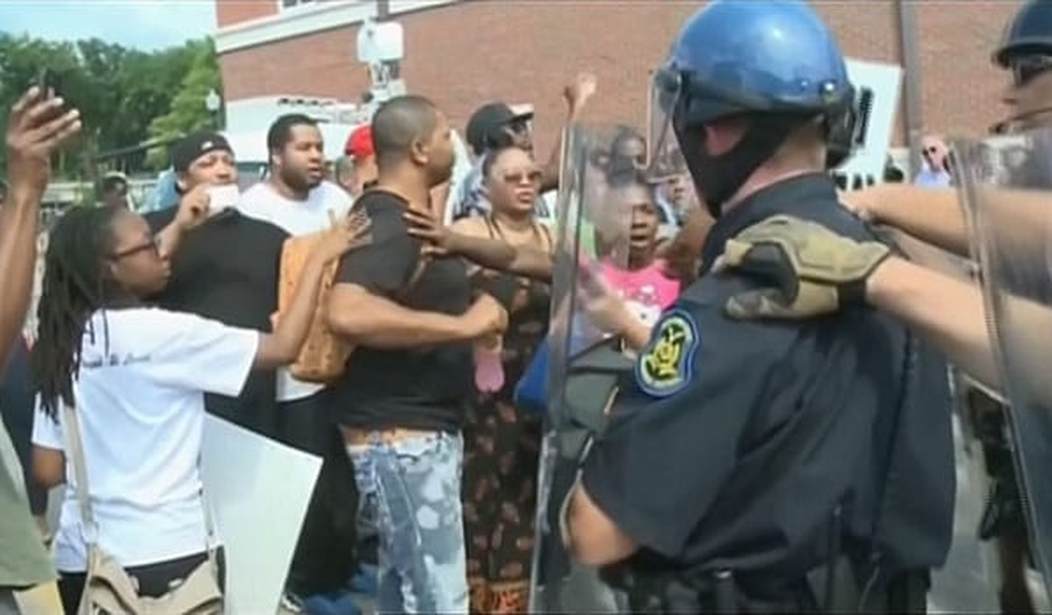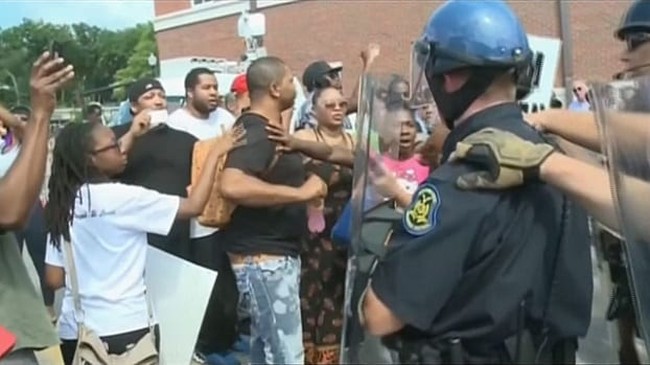In moral and political philosophy, the social contract or political contract is a theory or model, originating during the Age of Enlightenment, that typically addresses the questions of the origin of society and the legitimacy of the authority of the state over the individual.[1] Social contract arguments typically posit that individuals have consented, either explicitly or tacitly, to surrender some of their freedoms and submit to the authority of the ruler or magistrate (or to the decision of a majority), in exchange for protection of their remaining rights. The question of the relation between natural and legal rights, therefore, is often an aspect of social contract theory. The Social Contract (Du contrat social ou Principes du droit politique) is also the title of a 1762 book by Jean-Jacques Rousseau on this topic.
Jack Dunphy, a police officer in Southern California and contributor to NRO, has this observation:
He described the unwritten contract between the police and the community in places like Oakland, where one would think a petty affront to the commonweal like jaywalking should hardly warrant a police officer’s attention. But this unwritten contract, as McWhorter described it, places demands on both the police and the community. Under the contract, police officers ignore minor infractions like jaywalking, but they expect the community not to flout the law, even a minor one, in their presence. Thus when McWhorter jaywalked, the officer took it as a violation of the contract and a challenge, one that could not be ignored.
He’s right and what he’s describing closely fits what all the witnesses say happened in Ferguson. Putting aside the bullsh*t smokescreen about stolen cigars it seems that Brown and his friend were told to get on the sidewalk. They didn’t and seem to have shot their mouths off. A encounter and possible physical altercation ensued and Brown ended up dead.
The root cause was the breakdown of a social contract that has long served to prevent minor infractions from needlessly escalating. Chris Rock has a moderately NSFW (language) take on the subject which much in line with the wisdom I received from by father on the same subject:
[youtube]https://www.youtube.com/watch?v=uj0mtxXEGE8[/youtube]
Ultimately, the social contract is based on two thing: consent and perceived benefit. We allow cops a lot of leeway in enforcing the law because we instinctively know that a society in which each man must personally enforce his own right is a dangerous society. The second part of the equation is equally important. When we empower others to act on our behalf we may wink at minor abuses, like using emergency lights to go through a red light because you’re inconvienced (this is endemic in the Washington, DC police force), but we balk at wholesale abuses of power. For instance, the rather open and grotesque use of civil forfeiture laws is gaining attention. When those abuses extend to extrajudicial violence, it creates an inevitable situation where the governed withdraw their consent. This creates a self-destructive cycle that is hard to escape where the police are perceived (btw, in public relations one of the first things you learn is P=R, perception=reality) to be the enemy by the citizenry and the police reciprocate because the danger the citizenry present to the police increases.
It is hard to escape the racial component of the story, too. Regardless of what the usual cast of race-baiters are doing it is clear that policing in Ferguson had become something of not only an ‘us versus them’ situation, which is never a good thing because policing is far more complex a task than merely making arrests, but it had become a black versus white problem wherein 50 of 53 sworn officers in Ferguson, plus the police chief, are white while about 70% of Ferguson, itself, is black. Few of these officers actually live in Ferguson. In Obama’s “post racial” America this should not matter but it does matter and to Chief Jackson’s credit, he seems to have made a good faith effort to rein in the worst of the abuses that police force was accused of but changes in perception, again P=R, take time.
Under ordinary circumstances, where the social contract Jack Dunphy talks about is intact, the community gives the police officer the benefit of the doubt and expects a full and fair investigation… not one that railroads a police officer to appease a mob and certainly not one that whitewashes an egregious mal-application of the use of deadly force. When that contract is not in place, you have street protests, you have cops showing up dressed, and acting, like they were clearing Fallujah instead of dealing with a lawful exercise of Constitutional rights, you have the lawless element that is ever-present, and indeed the reason we have agreed that police are necessary, materializing to turn fear, anger, and uncertainty into violence and a quick buck. And you have the carrion-feeders, like Al Sharpton, Jesse Jackson, and whatever douchebag is leading the New Black Panther Party this week further inflaming a bad situation for the sake of their checkbooks.
Ferguson















Join the conversation as a VIP Member